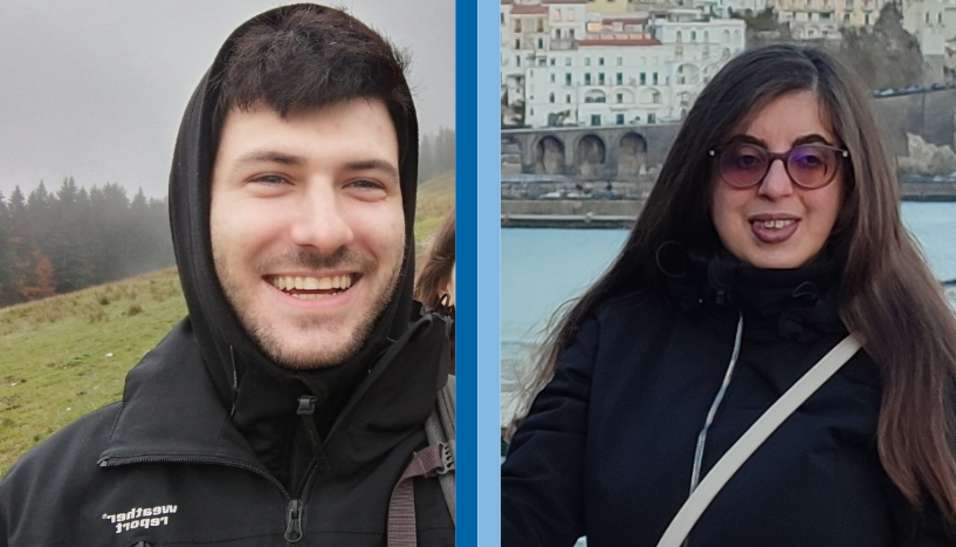BONETAG: Bone Proteomics for Neanderthal and Denisovan Genotyping
Ioannis Patramanis is a biologist and bioinformatician, studying human evolution. He did his PhD in the University of Copenhagen, the Globe institute, working with phylogenetic methods applied onto palaeoproteomic data. His research focuses on analysing proteins recovered from very degraded material of archaic humans such as teeth and bones.
Patramanis combines knowledge from the fields of ancient DNA and palaeoproteomics to better understand the genetic history of extinct human populations and other species. During his Marie Curie fellowship, he will work with Associate Professor Katerina Douka from the Department of Evolutionary Anthropology to improve lab and computational methodologies for ancient protein extraction and analysis. Proteins outlast DNA preservation in archeological material, leaving us with hundreds of bones that contain the former but lack the later. Yet, while current methodologies can easily identify a bone as belonging to 'humans', they cannot reliably distinguish between anatomically modern humans and our closest relatives: the Neanderthals and Denisovans.
"I'm very excited about this project! Our intention is to create methodologies and tools that will allow us to assign bones to these extinct populations and advance the field as whole. We intend to validate our protein results across different facilities to ensure confidence and replicability.", explains Ioannis Patramanis.
BrightPlaty: Unraveling lunar plasticity in Platynereis dumerilii and the impact of Artificial Light at Night (ALAN)
Maria Cocurullo is a marine biologist specializing in evolutionary developmental biology. She completed her PhD through a joint program between the Stazione Zoologica Anton Dohrn in Naples (Italy) and the Open University (Milton Keynes, UK). During both PhD and postdoc, she worked in Dr. Ina Arnone’s lab at Stazione Zoologica. Her research there focused on investigating how sea urchin larvae sense and process environmental cues, particularly light and food, to regulate their development and growth. For this, Cocurullo combined molecular biology and advanced microscopy to characterize the structure and function of the sensory and neurosecretory systems of sea urchin larvae.
Marine organisms rely on natural light cues to regulate critical biological processes. Many species, including the marine annelid Platynereis dumerilii, synchronize their reproduction with the lunar cycle. However, the molecular and cellular mechanisms behind these processes remain largely unexplored. Moreover, artificial light at night (ALAN), including streetlights and light reflected by clouds, can interfere with these processes, such as disrupting coral spawning events. Understanding ALAN’s impact on marine life is essential for assessing its broader effects on ecosystems.
For Cocurullo’s MSCA-PF she will join Prof. Kristin Tessmar-Raible’s lab at the Department of Neuroscience and Developmental Biology. There, she will explore how the moon influences brain activity in P. dumerilii. Through her project, BrightPlaty, she aims to: (1) map out the brain cells that change over the lunar cycle, (2) investigate whether wild worms show the same patterns, and (3) understand how ALAN could impact the plasticity of these brain cells in P. dumerilii. This research has the potential to advance our understanding of how moonlight influences life on Earth and raise awareness about the often overlooked impact of artificial light on marine ecosystems.
Maria Cocurullo explains: "I find this project exciting because it will allow me to explore how the Moon’s cycle shapes marine life in ways we are only beginning to understand. I’ll also have the opportunity to connect lab findings with real-world observations. It’s a chance to dive into something truly unique and important for both basic biology and conservation."
About the Marie Skłodowska-Curie Postdoctoral Fellowship
The European Commission’s Marie Skłodowska-Curie Postdoctoral Fellowship Program awards 2-year postdoctoral fellowships to outstanding scientists working in research institutions in EU member states, to support their careers and foster excellence in research.
The selection process evaluates the applicant's achievements and the scientific quality of the project and the host laboratory. The process is highly competitive, with less than 15 percent of applicants receiving a fellowship. On top of a monthly stipend, the fellowship provides research and travel allowances, and the program organizes a yearly meeting.
Learn more:
- Ioannis Patramanis on Bluesky and LinkedIn
- Katerina Douka’s Lab
- The Department of Evolutionary Anthropology

